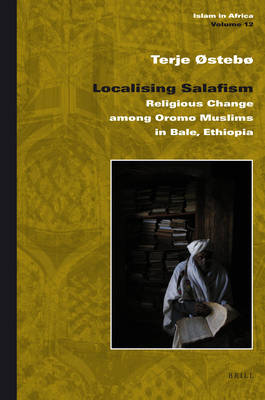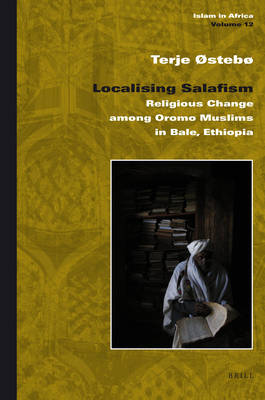
Je cadeautjes zeker op tijd in huis hebben voor de feestdagen? Kom langs in onze winkels en vind het perfecte geschenk!
- Afhalen na 1 uur in een winkel met voorraad
- Gratis thuislevering in België vanaf € 30
- Ruim aanbod met 7 miljoen producten
Je cadeautjes zeker op tijd in huis hebben voor de feestdagen? Kom langs in onze winkels en vind het perfecte geschenk!
- Afhalen na 1 uur in een winkel met voorraad
- Gratis thuislevering in België vanaf € 30
- Ruim aanbod met 7 miljoen producten
Zoeken
€ 297,95
+ 595 punten
Omschrijving
The political transition in 1991 and the new regime's policy towards the ethnic and religious diversity in Ethiopia have contributed to increased activities from various Islamic reform movements. Among these, we find the Salafi movement which expanded rapidly throughout the 1990s, particularly in the Oromo-speaking south-eastern parts of the country. This book sheds light on the emergence and expansion of Salafism in Bale. Focusing on the diversified body of situated actors and their role in the process of religious change, it discusses the early arrival of Salafism in the late 1960s, follows it through the Marxist period (1974-1991) before discussing the rapid expansion of the movement in the 1990s. The movement's dynamics and the controversies emerging as a result of the reforms are discussed, particularly with reference to different understandings of sources for religious knowledge and the role of Islamic literacy.
Specificaties
Betrokkenen
- Auteur(s):
- Uitgeverij:
Inhoud
- Aantal bladzijden:
- 408
- Taal:
- Engels
- Reeks:
- Reeksnummer:
- nr. 12
Eigenschappen
- Productcode (EAN):
- 9789004184787
- Verschijningsdatum:
- 6/10/2011
- Uitvoering:
- Hardcover
- Formaat:
- Genaaid
- Afmetingen:
- 165 mm x 244 mm
- Gewicht:
- 816 g

Alleen bij Standaard Boekhandel
+ 595 punten op je klantenkaart van Standaard Boekhandel
Beoordelingen
We publiceren alleen reviews die voldoen aan de voorwaarden voor reviews. Bekijk onze voorwaarden voor reviews.









